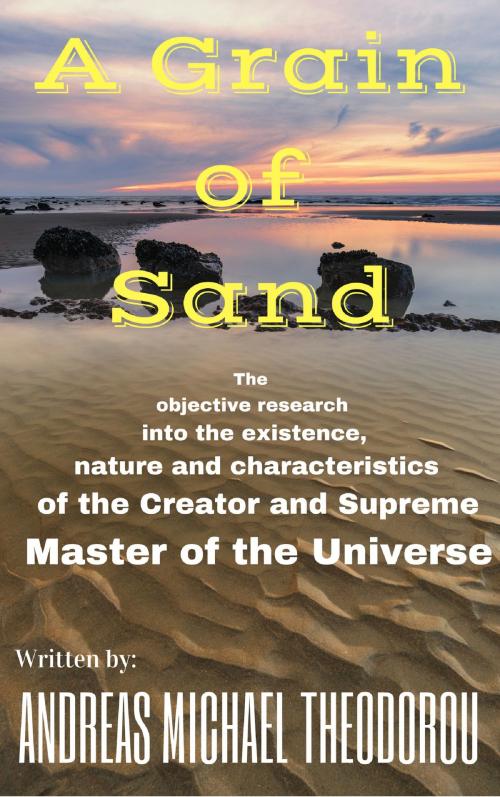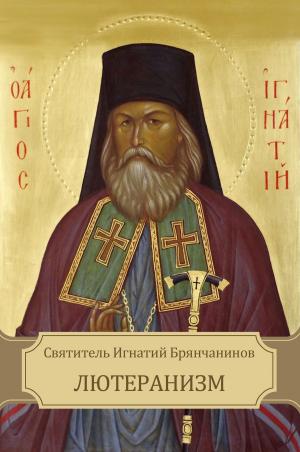A Grain of Sand
Nonfiction, Science & Nature, Science, Physics, Energy, Religion & Spirituality, Philosophy, Religious| Author: | Andreas Michael Theodorou | ISBN: | 9781310363184 |
| Publisher: | Andreas Michael Theodorou | Publication: | October 10, 2015 |
| Imprint: | Smashwords Edition | Language: | English |
| Author: | Andreas Michael Theodorou |
| ISBN: | 9781310363184 |
| Publisher: | Andreas Michael Theodorou |
| Publication: | October 10, 2015 |
| Imprint: | Smashwords Edition |
| Language: | English |
Contrary to declarations from well known scientists who claim that Science does not provide any evidence supporting the existence of God, this book proves beyond any reasonable doubt exactly the opposite. Scientific evidence does indeed support the existence of God. Nevertheless, the difference in opinion may be apparent and not real due to the fact that the concept of God does not necessarily mean exactly the same thing to different people. Atheists or agnostics referring to the concept of God as implied in the scriptures of contemporary religions, are perfectly correct in claiming that Science may not support such existence. But what if God is a totally different entity which in every respect satisfies all requirements and specifications demanded by the universal perception of a Deity? If such perception does not exist, then one can never reach conclusions which can have widespread acceptance and any investigation on the subject will be in vain and ineffective. If on the other hand the concept of God is clearly defined so that it enjoys universal acceptance, then it is possible to perform such interrogation of the available evidence in order to propose a conclusion which is supported by most people.
For the reason explained above, the investigation starts with a detailed and extensive definition of the concept of God by specifying a framework of qualities and characteristics which a Deity should satisfy, in order to be universally acceptable. This profile serves as the non-negotiable reference for all prospective candidates.
Subsequently the search delves into the domain of natural world in an attempt to identify possible physical quantities or entities which could satisfy the prescribed characteristics. Overcoming the maze of traps which had to be bypassed in order to avoid compromising the objectivity of the research, a clear, logically sound and factually supported conclusion is derived. Surprizing in its simplicity, the outcome does not only satisfy the intellect of the reader but it challenges the reader’s view of the world and the prevailing beliefs regarding a host of other peripheral concepts which are dealt in great detail in the second part of the book and under the light of the conclusions reached in the first part.
Certainly the book may not lay claim to any literary awards, but its value resides in the incredibly interesting answer it provides, effectively resolving a query that vexed human minds for thousands upon thousands of years. Audacious as it may appear, the unravelling of the ages long mystery will change the way that the world is viewed from now onwards and will establish the findings of this investigation as the most reliable reference on the subject of Creation and God.
Contrary to declarations from well known scientists who claim that Science does not provide any evidence supporting the existence of God, this book proves beyond any reasonable doubt exactly the opposite. Scientific evidence does indeed support the existence of God. Nevertheless, the difference in opinion may be apparent and not real due to the fact that the concept of God does not necessarily mean exactly the same thing to different people. Atheists or agnostics referring to the concept of God as implied in the scriptures of contemporary religions, are perfectly correct in claiming that Science may not support such existence. But what if God is a totally different entity which in every respect satisfies all requirements and specifications demanded by the universal perception of a Deity? If such perception does not exist, then one can never reach conclusions which can have widespread acceptance and any investigation on the subject will be in vain and ineffective. If on the other hand the concept of God is clearly defined so that it enjoys universal acceptance, then it is possible to perform such interrogation of the available evidence in order to propose a conclusion which is supported by most people.
For the reason explained above, the investigation starts with a detailed and extensive definition of the concept of God by specifying a framework of qualities and characteristics which a Deity should satisfy, in order to be universally acceptable. This profile serves as the non-negotiable reference for all prospective candidates.
Subsequently the search delves into the domain of natural world in an attempt to identify possible physical quantities or entities which could satisfy the prescribed characteristics. Overcoming the maze of traps which had to be bypassed in order to avoid compromising the objectivity of the research, a clear, logically sound and factually supported conclusion is derived. Surprizing in its simplicity, the outcome does not only satisfy the intellect of the reader but it challenges the reader’s view of the world and the prevailing beliefs regarding a host of other peripheral concepts which are dealt in great detail in the second part of the book and under the light of the conclusions reached in the first part.
Certainly the book may not lay claim to any literary awards, but its value resides in the incredibly interesting answer it provides, effectively resolving a query that vexed human minds for thousands upon thousands of years. Audacious as it may appear, the unravelling of the ages long mystery will change the way that the world is viewed from now onwards and will establish the findings of this investigation as the most reliable reference on the subject of Creation and God.















